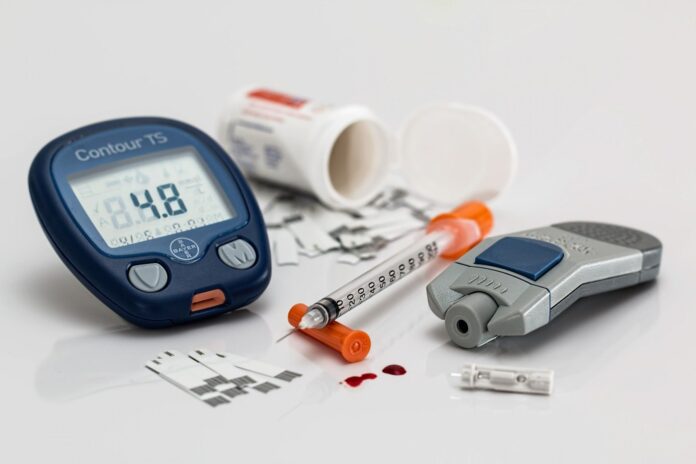Manchester-based researchers estimate that between March and December 2020, 7.4 million fewer NICE recommended health care checks took place in UK general practices in people with type 2 diabetes, when compared to 10-year historical trends.
The research involved analysing the primary care healthcare records of 618,161 people with type 2 diabetes to estimate how many health checks had been missed during the pandemic in 2020 and who had been most affected.
The checks include measuring blood pressure and weight, urine tests for protein and blood tests for cholesterol, kidney function and average sugar level. These processes are essential to minimise the risk of developing long-term complications caused by type 2 diabetes.
The results have shown older people with type 2 diabetes from deprived areas were most likely to miss out on having health checks.
The researchers also estimated that across the UK between March and December 2020, there were ~31,800 fewer people with type 2 diabetes prescribed a new type of diabetes medication and ~14,600 fewer were prescribed a new type of blood pressure lowering medication. This almost certainly means that large numbers of people are being left with poorly controlled diabetes and high blood pressure which increases the risk of developing serious complications such as heart attacks, strokes, kidney failure and amputations.
Dr Matthew Carr from The University of Manchester, and lead for this study at the GM PSTRC, said: “Health checks for people with type 2 diabetes are generally carried out in general practice and as face-to-face appointments aren’t yet back up to pre COVID levels delays are likely to continue. As a result, there’s an urgent need to reduce the harm caused by these changes to the way care has been delivered.
“Although it’s not possible to estimate the number of people who have missed out on a check, we are able to analyse health care records to identify the number of processes that took place. This has allowed us to understand the size of the problem, along with the sectors of the population that have been most affected by looking at how trends varied by age, sex, ethnicity and deprivation.”
The research revealed that, between May and December 2020 the number of health checks did increase, but they remained between 28-47% lower than expected.







